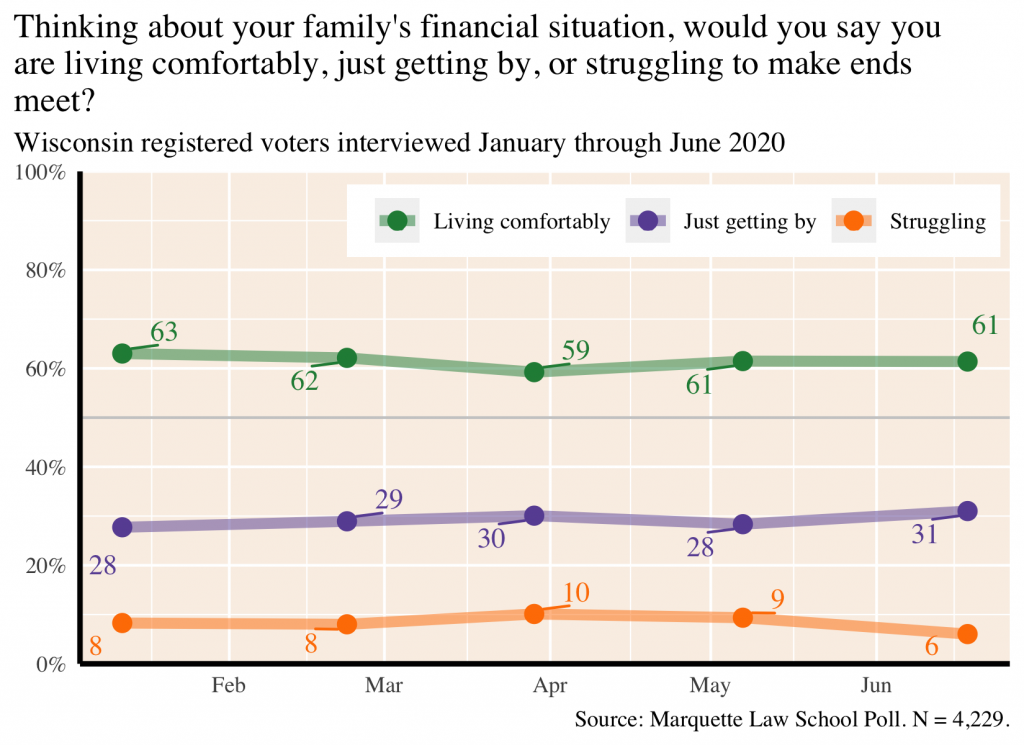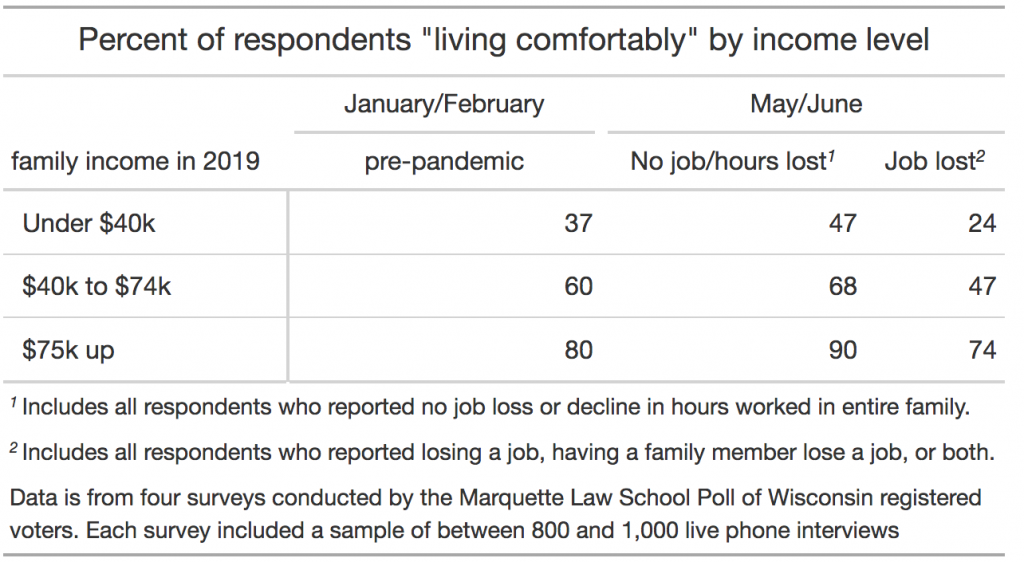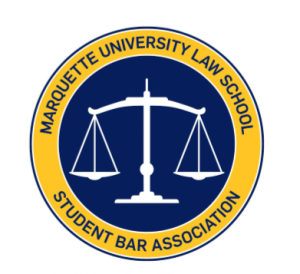Wisconsin’s unemployment rate hit 14 percent in April and remained at 12 percent in May. Combining surveys from late March, early May, and mid June, the Marquette Law Poll found that 13 percent of Wisconsin registered voters had lost a job or been laid-off due to the coronavirus outbreak. A further 23 percent said this had happened to a family member. Likewise, 23 percent reported working fewer hours due to the coronavirus outbreak, and another 29 percent said this had happened to a family member. Altogether, 27 percent of those interviewed had either lost a job, lost hours, or both at some point during the economic shutdown.
Taken by themselves, these numbers suggest an economic catastrophe on par with the Great Depression, but that has not happened–at least not yet–in the experiences of most Wisconsinites. In nearly every poll, we ask respondents to evaluate their family’s financial situation–are they “living comfortably, just getting by, or struggling to make ends meet?” The trend is remarkably flat. In January 2020 63 percent said they were living comfortably–statistically indistinguishable from the 61 percent saying the same thing in June. So what gives?

Our poll alone cannot answer this question definitely, but it can offer some clues. Just as COVID-19 has hurt some communities in Wisconsin more than others, so too has the accompanying economic crisis. Along with disproportionate cases and deaths, Black and Latinx Wisconsin residents faced a stark economic toll. The number of Black respondents “struggling to make ends meet” increased from 10 percent in January/February to 22 percent during the pandemic. The proportion of Latinx respondents “living comfortably” declined from 66 percent to 47 percent over the same period.
In early 2020, prior to the economic shutdown, 63 percent of respondents described their family as “living comfortably.” People who lost their job during the pandemic did indeed report declining financial comfort. Just 37 percent of those who lost a job were “living comfortably.” Even worse off were those whose families lost multiple jobs. Only one in three people in this position were “living comfortably;” 57 percent were “just getting by,” and 11 percent were “struggling to make ends meet.” But people who suffered no financial ill effects actually improved their self-assessed financial well-being during the pandemic. Among people whose families lost no jobs or hours, 70 percent were “living comfortably,” 25 percent “just getting by,” and only 4 percent struggling to make ends meet.
The table below compares experiences by income level in 2019. To maximize cases, I pooled together all respondents who reported a job loss among any member of their family.
Before the pandemic, 37 percent of people with household incomes below $40,000 said they were living comfortably. People in this income bracket whose family lost at least one job during the shutdown now report a 24 percent rate of “living comfortably”–a 13 percent decline. Forty-seven percent of people from families who avoided income losses now say they are “living comfortably”–a 10 percent increase. The same pattern repeats itself in each other income tier.

What accounts for the increase in “living comfortably” among those who’ve kept their jobs? I see three possible explanations, all of which probably contribute in some way.
First, job losses in the pandemic have been concentrated among lower-wage workers. It could be that those who lost their jobs were already more likely to be financially struggling. Second, people whose families have kept their jobs may feel themselves lucky and are thus more likely to positively evaluate their subjective financial well-being. Third, people who have maintained an uninterrupted income stream may actually be making and/or saving more money than before. Whatever the cause, the pandemic appears to be sharpening the division between haves and have-nots in Wisconsin’s economy.



 To Our Peers, Professors, And Administrators:
To Our Peers, Professors, And Administrators: